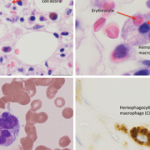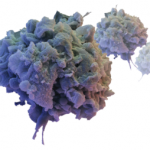 A Roshi (i.e., master) apparently said that in Zen, “there is nothing to believe and everything to discover.” Interestingly enough, I have never been able to confirm who actually said that, which makes this saying about belief and discovery particularly apt. Regardless, I think about those words at least twice a day when I am in the clinic because even though I may not be a Zen master, I am a rheumatologist.
A Roshi (i.e., master) apparently said that in Zen, “there is nothing to believe and everything to discover.” Interestingly enough, I have never been able to confirm who actually said that, which makes this saying about belief and discovery particularly apt. Regardless, I think about those words at least twice a day when I am in the clinic because even though I may not be a Zen master, I am a rheumatologist.
What I love about the saying is its two parts and their connection to one another. It embraces both a skepticism and a curiosity that doesn’t seem nihilistic or contrived. It strikes the perfect balance—one that seems to define our field. In fact, in this day and age, I think it should be a mantra for us. New cells, new therapies and new insights into disease and illness are revolutionizing what it even means to be a rheumatologist. Almost nothing seems to be off limits. Long-held orthodoxies are routinely questioned by enterprising heretics and iconoclasts. Other times, accidental developments drive insights into disease and treatment. We’re privileged to live in an amazing revolutionary age.
Everyday Clinical Discovery
The most exciting discoveries that I engage in as a clinical rheumatologist are the relatively boring, everyday things that I learn about my patients. No matter how long I have known them or how simple their case is, I always find something new about them—a hobby, a relation, a local claim to fame, an accomplishment, and so forth. I’ve discovered much about the ins and outs of corn and soy agriculture through my encounters with farmers, and about the varied geography of Iowa’s quirky micropolises.
Beyond those, my favorite encounters are those that challenge my own beliefs about who people are and what constitutes human nature. One time I had a patient with a thick rural Appalachian accent and a dirty trucker cap smelling of tobacco. I had no idea that he had a PhD in Sanskrit studies and was a noted scholar in his day. He even enlightened me on the subtle meaning behind my very own name. Another time, I encountered a veteran who regaled me with stories of being in Washington, D.C., and entertaining the Roosevelt family. I would have never suspected, and perhaps never have believed, this story unless I heard it firsthand.
Such encounters, which are commonplace in rheumatology, can only happen when there’s a sense of humility and respect on both sides of the patient and clinician therapeutic alliance. The joy of rheumatology, perhaps uniquely among the different fields of medicine, comes from seeing patients in relationships that evolve over time. I am always in awe that there is so much more to discover. I’d like to believe that patients enjoy discovering the various things that are happening in our lives, too.


